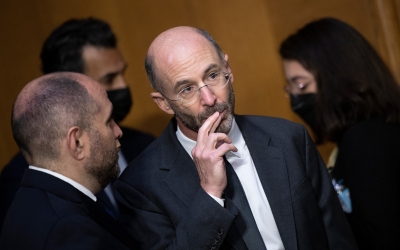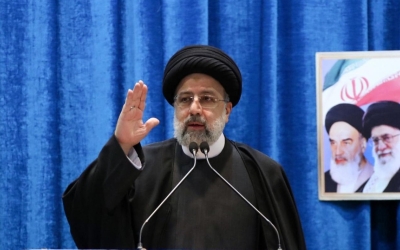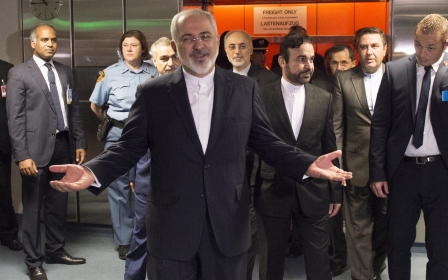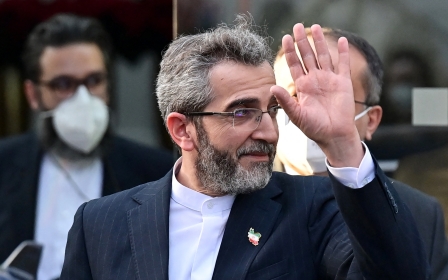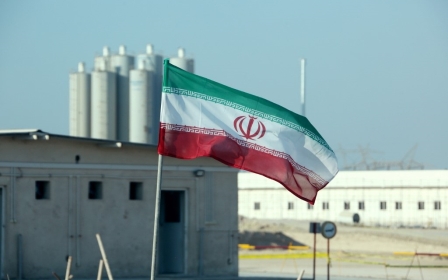Iran nuclear deal: An interim plan could still salvage the talks
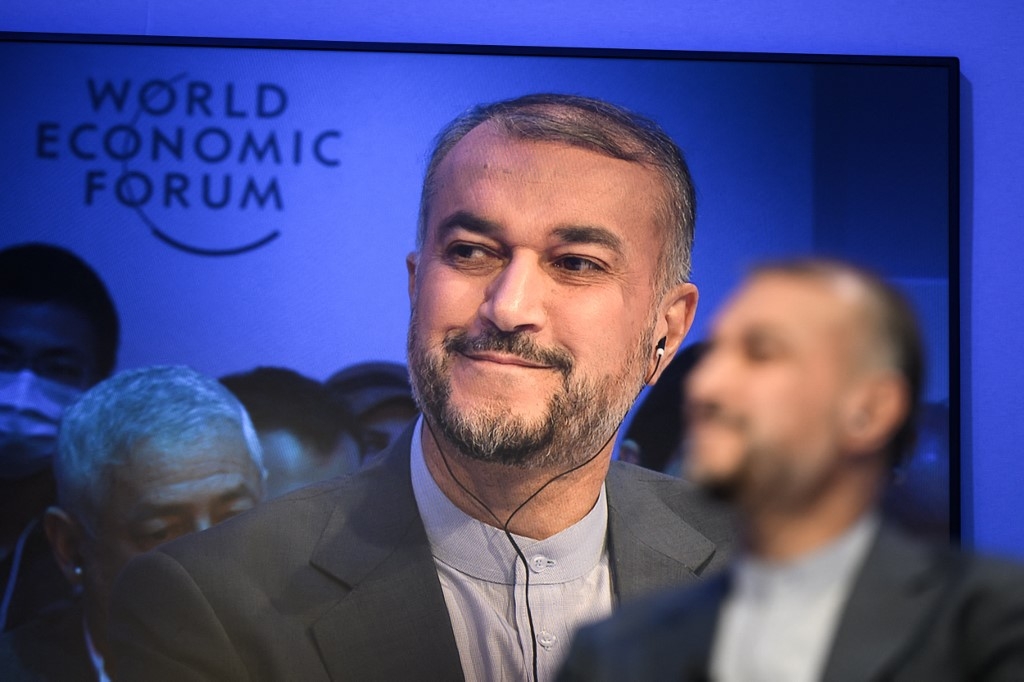
On 25 May, at the World Economic Forum in Davos, Iran’s foreign minister, Hossein Amir-Abdollahian, reiterated that in order to revive the Iran nuclear deal, “the most important issue is that the economic sanctions against Iran should be effectively removed".
The Trump administration placed the IRGC on the FTO list in 2019 to make it as difficult as possible for the next administration to undo the damage
He continued: "Downplaying this key issue and focusing on another issue [delisting the Iranian Revolutionary Guards from the US's Foreign Terrorist Organisation list) is not the correct response. We have not yet seen Biden act differently from Trump in practice. We have left the door for diplomacy wide open to reach a good and lasting agreement.”
President Joe Biden has decided to keep Iran’s Revolutionary Guard Corps (IRGC) on the US blacklist of foreign terrorist organisations (FTOs). He conveyed this decision to Israel’s Prime Minister Naftali Bennett in April, stating that the decision was final and that the window for concessions to Iran had closed.
The Trump administration placed the IRGC on the FTO list in April 2019 to make it as difficult as possible for the next administration to undo the damage.
Paul Pillar, a senior fellow at Georgetown University and former executive assistant to the director of US Central Intelligence, has stated: “This move was a clear misuse of the FTO list. Of the 73 organisations currently on the list, 72 are - as creators of the list intended - non-state groups. The IRGC is the only one that isn’t.”
New MEE newsletter: Jerusalem Dispatch
Sign up to get the latest insights and analysis on Israel-Palestine, alongside Turkey Unpacked and other MEE newsletters
During a public interview with Fareed Zakaria of CNN at the World Economic Forum, Amir-Abdollahian said: "We have intelligence that the Zionist regime has taken the foreign policy of the US hostage."
This is consistent with what an Iranian official, who requested anonymity, told me.
He said that, in 2011, during Mahmoud Ahmadinejad’s presidency, in an international conference under Chatham House Rules, a former chief of the Israeli intelligence service (Mossad) told an Iranian ambassador: "You are negotiating with the six world powers on your nuclear programme but, in the end, we will decide on Iran's nuclear programme.”
'Only solution a diplomatic one'
On 25 March, Robert Malley, the lead US negotiator for the revival of the nuclear accord, told members of the Senate foreign relations committee that Iran’s demand for delisting the IRGC from the FTO list was unrelated to the 2015 nuclear deal and that, as a result, Tehran would have to offer an equivalent “reciprocal” concession to Washington, which it has thus far failed to do.
He emphasised, however, that “a military option cannot resolve this issue. It could set it back. The only real solution here is a diplomatic one.”
The reality is that, after a year of negotiations, there is an agreement on the choreography of how Iran and the US would rejoin the 2015 deal. The key remaining issue is Iran’s demand for a guarantee that the US will abide by the deal and not withdraw again.
Biden is unable to guarantee that Congress or the next president will not overturn the deal again. Therefore, Iran’s logic has been that, in the absence of such a guarantee, an equivalent “reciprocal concession” for Tehran would be delisting the IRGC from the US terrorist blacklist.
Meanwhile, Iran is very close to having enough highly enriched uranium for at least one bomb.
If the hang-up is the inability of the US to guarantee - at least before the November US midterm elections - that, if the nuclear deal is revived, it will be sustained, or that the IRGC will be removed from the FTO list, Tehran and Washington should consider an interim deal. One possibility would be a "two vs two plan of action" within the framework of the Joint Comprehensive Plan of Action (JCPOA).
Shadow war
In it, Iran would firstly stop producing uranium enriched to 20 percent and 60 percent uranium-235 and limit itself to producing uranium enriched to less than 5 percent; and, secondly, return to compliance with the additional protocol so that the International Atomic Energy Agency (IAEA) could again verify that Iran is not producing centrifuges for a clandestine enrichment facility.
With these measures, the world powers would have appropriate objective guarantees on the non-diversion of the Iranian nuclear programme towards weaponisation.
For its part, the US would lift sanctions on purchases of Iran’s oil, and also lift sanctions on Iran’s financial institutions, including its central bank.
Of course, the best outcome would be a complete revival of the nuclear deal. In the absence of full compliance, however, an interim deal would be a better option than a possible war.
On 22 May, Colonel Sayad Khodai of Iran's IRGC was fatally shot and killed in Tehran. Israel is suspected of arranging the assassination, one of many.
The reality is that Israel, the US and Iran are already in a shadow war, one that has been playing out for years on land, sea, air and in cyberspace.
Biden’s Iran negotiator told the congressional hearing that “nuclear talks aren’t dead, but almost”.
An interim deal could still salvage the accord and potentially provide the basis for full compliance by both sides after the US elections this November.
The opinions expressed in this article are those of the author and do not necessarily reflect the editorial policy of Middle East Eye.
Middle East Eye delivers independent and unrivalled coverage and analysis of the Middle East, North Africa and beyond. To learn more about republishing this content and the associated fees, please fill out this form. More about MEE can be found here.



